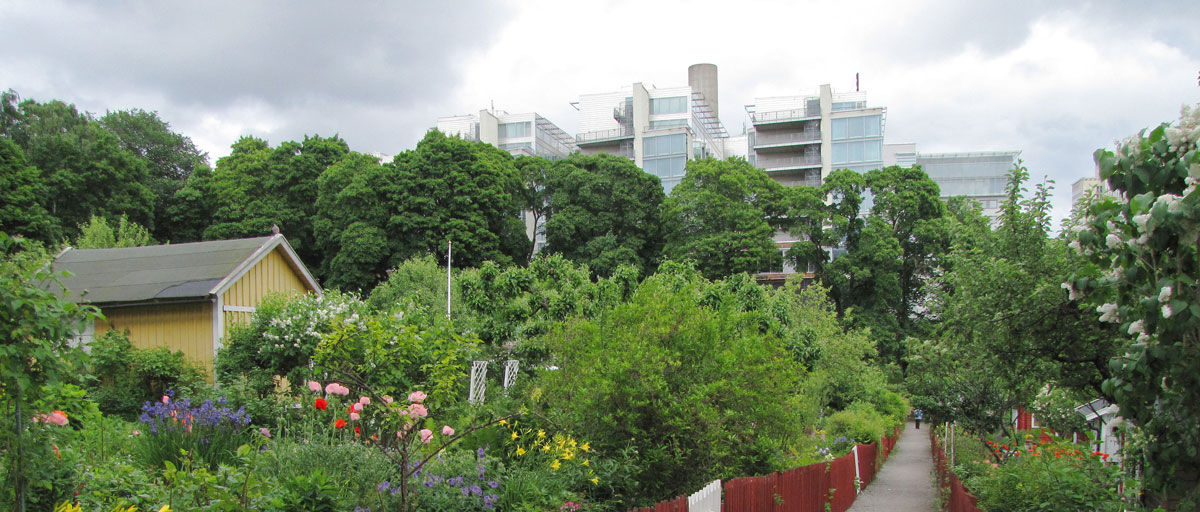
A special issue of Ecological Indicators looks at how to deal with the consequences of rapid urban expansion while at the same time guaranteeing well-functioning ecosystem services. Photo: J. Lokrantz
Bildtext får vara max två rader text. Hela texten ska högerjusteras om den bara ska innehålla fotobyline! Photo: B. Christensen/Azote
URBAN DEVELOPMENT
Cities are complex – deal with it!
Centre research featured in special issue on urban sustainability and resilience
- Special issue in Ecological Indicators on the complex nature of "urban social-ecological-technical system"
- The rationale of the special issue is that cities and urban areas are changing faster than ever before, with resulting social, ecological and infrastructural growing pains
- Special issue examines urban sustainability transitions,
green space availability, urban land use scenarios, and much more
Cities never sleep, they say. The same could be said of urbanisation. By 2050 some 6.5 billion people will be living in urban areas according to projections. The question is how urban decision-makers around the world should best deal with the challenges this implies in order to make future cities inclusive, safe, resilient and sustainable.
This very question is the focal point of a special issue of Ecological Indicators called “Navigating urban complexity: Advancing understanding of the complex nature of urban social–ecological–technical systems”.
The special issue features an article by centre researchers Erik Andersson and Stephan Barthel on social-ecological memory carriers in metropolitan areas. Moreover, Åsa Gren from the centre and the Beijer institute of ecological economics, a centre partner, is one of the editors of the issue together with Timon McPhearson (USA) and Dagmar Haase and Nadja Kabisch (Germany).
In their editorial, together they stress the need to move beyond the historically separate social–ecological and socio-technical approaches to jointly study social–ecological–technical infrastructure systems in cities. This in its turn is key to sustainability at larger scale.
"Global sustainability is dependent on cities and urban regions around the world to steadily transition toward more sustainable development processes and patterns, given that the majority of natural resource consumption, waste generation, energy use and more, occurs in cities," they write.
Growing pains
The rationale of the special issue is of course that cities and urban areas are changing faster than ever before, with resulting social, ecological and infrastructural growing pains. In the midst of all this turbulence, decision makers still need to secure fresh and clean air, available clean drinking water, energy and food for reasonable prices, high quality recreational spaces and an overall more liveable environment in cities.
This is a huge and complex challenge, they conclude, but a joint and holistic systems understanding holds the key to new and improved urban planning, policymaking and governance for sustainability.
"In this editorial, we consider how insights from different urban system indicators and system approaches exemplified through emerging research, especially on urban ecosystem services, can provide an opportunity for identifying and assessing urban system transformations," they write.
Complexity as a given
The editorial is followed by a special issue that looks into a collection of entry points to the complexity of urban systems in planning and governance. As such, the issue actively links various fields of interest, including interdisciplinary urban ecosystems research, social–ecological systems assessment, valuation, and next-generation urban planning.
"We take urban complexity as a given and suggest that in both research and practice we need to better capture and understand feedbacks, interdependencies, and non-linearities which create uncertainties and challenge the efficacy of governance practices to achieve normative goals for society," they conclude.
Exploring new methods, tools and approaches to urban system complexity the special issue examines urban sustainability transitions, green space availability, urban land use scenarios, and much more.


.png)






